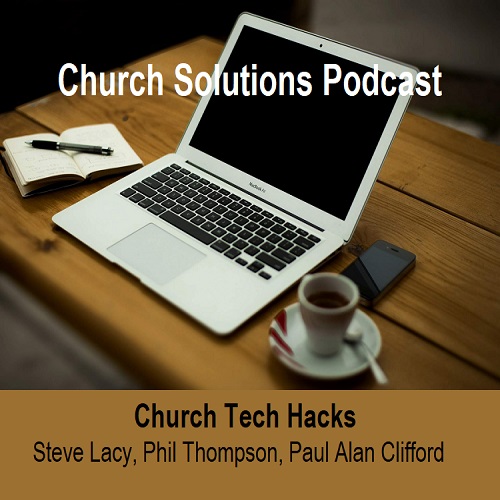

 Hacks to Improve your Church Tech Preparations and Presentation
Hacks to Improve your Church Tech Preparations and Presentation
by Paul Alan Clifford
Learning your software. If you don’t know what it can do, you’ll struggle to get it to do things. That will really slow you down.
Learning keyboard shortcuts. The mouse is the slowest way to interact with a computer. Generally, touch screens are faster, unless information is buried in a menu or multiple layers deep. With keyboard shortcuts, you can do what you want without taking your hands off the keyboard. Learn to shortcuts that will help you do what you do most often as quickly as possible.
Leaving gear set up. Sometimes you don’t have a choice, but if you have the room and the space is secure, don’t tear everything down every week. Instead, use dust covers or locked racks to make set up as easy as turning everything on.
Labeling everything. Where does this cable go? How long is that one? Is this an XLR cable or a 3-pin DMX? Label the beginning and end of each cable so you don’t have to trace it by hand, you can just find the label and go.
Knowing what each piece does. If you don’t know what it does, you can’t know what happens if it breaks.
Create a diagram for signal flow. If something quits working, you should know every stop the signal makes, what happens there, and how to test each piece.
Practicing. Practicing isn’t just for the band. The trickiest parts of live production are the transitions. If you don’t know what’s coming next, you can’t plan for it. Sometimes you can’t practice, but if you can, you should so you can anticipate problems.
Every minute planning will save you time later and planning might make impossible things possible. If you know your team needs to do something you don’t have the equipment to do, planning ahead means you might be able to borrow or rent it. It might also give you the time to come up with ideas that your brain doesn’t have the time to create ahead of time.